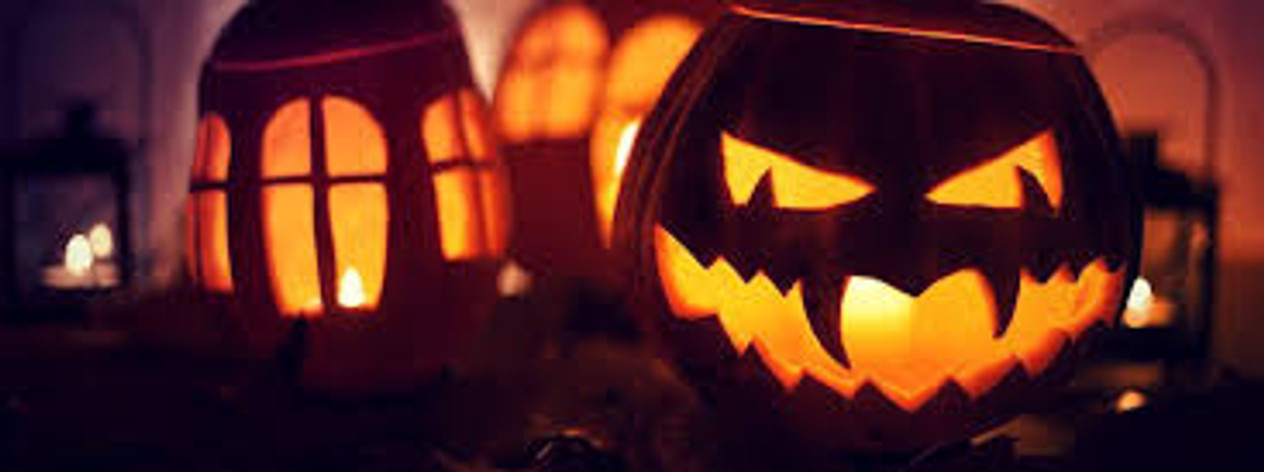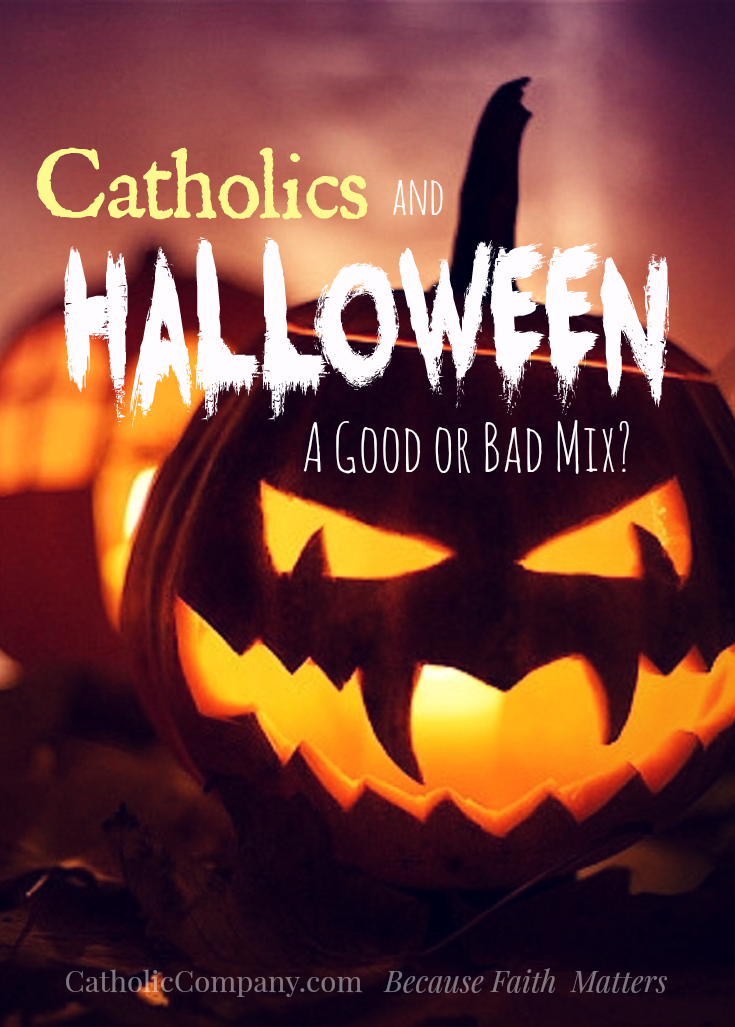A Catholic's Guide To Halloween
Oct 30, 2020 by Gretchen Filz
Catholics and Halloween: a good or bad mix? Is this a pagan holiday? Should we not celebrate it?
The short answer is that the true substance of Halloween belongs to the Catholic Church.
Any violence, gore, sensuality, or demonism now commonly associated with Halloween is not, in fact, true to the origins of this holiday. (By the way, the word “holiday” comes from the words holy day.)
What’s true—and false—about the origins of Halloween?
Here are the facts. (And scroll to the end for a guide on how to celebrate Halloween as a Catholic!)
What IS Halloween?
- The word “Halloween” comes from All Hallow's Eve.
- All Hallows Eve is the vigil of All Saints Day—also known as All Hallows Day. The word “hallow” means “holy.” (In the Our Father we pray, “Hallowed be thy name.”)
- All Saints Day is a Holy Day of Obligation, and thus a major feast on the Catholic Church's liturgical calendar.
- All Saints Day honors not only the saints in heaven whom we know by name, but also any saints in heaven whose names are unknown.
Read more: What Do Catholics Really Believe About Purgatory?
Why is Halloween on October 31st?
- Pope Gregory III (731–741) transferred the Feast of All Saints from its former day of May 13th to November 1st to coincide with the foundation of a new chapel in St. Peter's Basilica which he dedicated to all the saints in heaven.
- Halloween is on October 31st because All Saints Day is November 1st. All Souls Day is on November 2nd. These three days taken together are the "Days of the Dead," a triduum of feasts also called Allhallowtide, Hallowtide, or Hallowmas (Hallow meaning saint or holy and mas meaning Mass).
- Halloween is, therefore, the first day of Allhallowtide, the time of year when the living (the Church Militant) honor all the dead in Christ: the saints in heaven (the Church Triumphant) as well as all the holy souls detained in purgatory on their way to heaven (the Church Suffering). It is a beautiful celebration of the Communion of Saints!
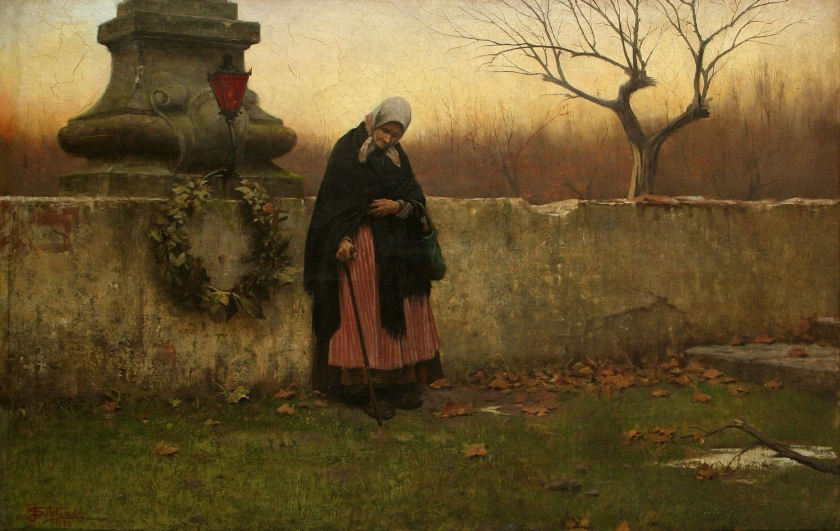
Praying for a deceased loved one on All Souls Day. Painting by Jakub Schikaneder.
- Pope Gregory IV (827–844) extended the Feast of All Saints—which was previously a local feast in Rome—to the universal Church. That is why the eve of All Saints Day (Halloween) came to be celebrated by Catholics around the world in their own cultural ways.
- It was customary in historic Catholic Europe to have evening vigils with pious celebrations on the day before a major feast or solemnity; the rhythms of people’s lives and culture moved with the liturgical calendar. That’s why a vigil was kept the evening before All Saints Day—and why Halloween exists at all.
- Even today, Catholics begin celebrating major feasts the evening before the big day. Christmas has Christmas Eve. All Hallows Day has All Hallows Eve. If you pray the Divine Office, you will see that the prayers for a big holy day begin the evening before, as though the feast had already arrived.
Why do Catholics celebrate “The Days of the Dead”?
- Celebrating these Christian holy days helps remind the faithful of the reality of heaven and hell, the saints and the damned, demons and angels, and the holy souls suffering in purgatory.
- It reminds us to pray for the souls of the deceased. It is also a reminder that we, too, will one day die, and should always strive to live good and holy lives so that we can be ready to enter eternity and stand before God.
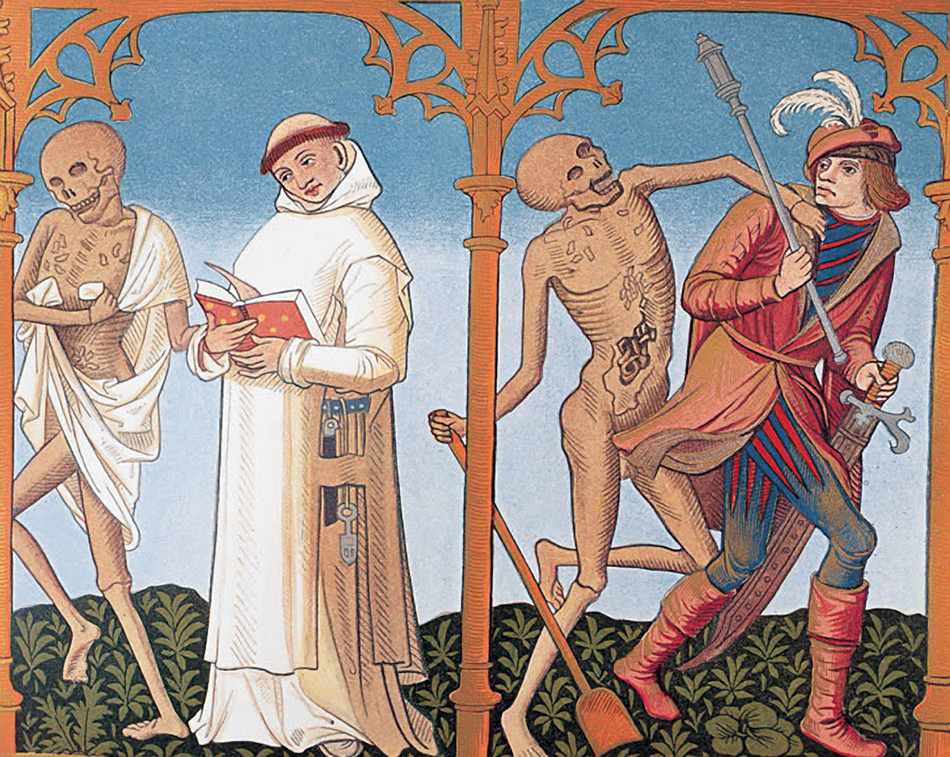
The "Dance of Death" depicted in medieval art. This art was a reminder that no one lives forever, and that we should remember our death and live in a way that makes us unafraid to die and ready to meet Christ our Judge.
Is it true that the Catholic celebration of Halloween has some pagan roots?
- Halloween is a Catholic holiday. It does not have origins in paganism, Samhain, Druidic festivals, the occult, or Satanism. This common misconception is relatively new anti-Catholic propaganda, with roots going back to the Protestant Reformation. It has no basis in historical fact.
- Many people see the coincidence of dates between Samhain and All Saints Day and presume a connection. However, it turns out the date is just that: a coincidence.
Where did the various Halloween traditions come from?
- English, Irish, and French immigrants brought their variety of local Catholic customs to America. Dressing up for Halloween comes from the French; Jack-o-Lanterns come from the Irish, who originally carved turnips; the English begged from door to door for "Soul Cakes," promising to pray for the departed loved ones of those who gave them these treats—this being the origin of trick-or-treating. These traditions converged in the big American “melting pot” and eventually became popular nationwide activities for Halloween.
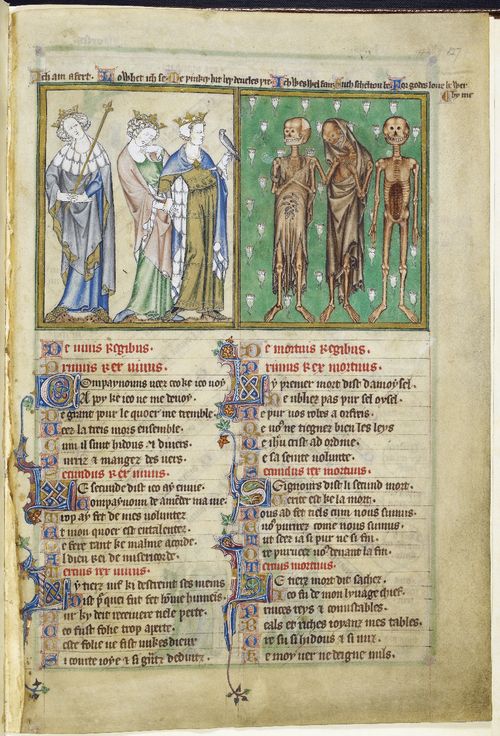
Where did misconceptions of Halloween come from?
- When European Catholics immigrated to predominantly-Protestant America, bringing cultural Catholic customs with them, these customs were denounced as pagan. (New England Puritans once banned the celebration of Christmas and Easter!)
- All Hallows Eve has been hijacked by a secular culture. The contemporary version of “Halloween” that glorifies the demonic with an emphasis on violence, horror, and sensuality is—at least in part—a result of Catholics believing the propaganda against their faith and pulling away from a traditional and faithful celebration of this holy day.
What can we do, if Halloween has been hijacked?
- It is true that Halloween has been badly corrupted and hyper-commercialized, just like Christmas and Easter. However, just as that should never stop Catholics from fully celebrating the great feasts of the Church the Catholic way, neither should it stop Catholics from enjoying Halloween as a vigil celebration of the great feast of All Saints.
Celebrate Halloween as a Catholic
Catholics should not neglect the celebration of any of the Church's major feasts. All Saints Day is no exception. It is a Holy Day of Obligation, meaning that Catholics are required to attend Mass just as though it were a Sunday.
To avoid superstition and the influence of the occult, Halloween should not be honored or celebrated apart from Catholic truth.
It’s a day to reflect on Christ's triumph over sin, death, and the devil; to meditate on our own mortality and duties to God; to shun sin, Satan, and all his works; to give honor to the saints in heaven; to pray for the souls of the faithful departed in purgatory.
And, of course, to have fun with joyful feasting and merriment!
How to Celebrate Allhallowtide
- Take the family to Mass on All Hallow's Eve.
- Pray for the intercession of the saints in heaven—especially those who are your patrons.
- Read about the lives of the saints, give out holy cards, have a party with saint-based activities or costumes for kids.
- Thank the saints for what they have done for you on All Saints Day—adorn their altars and images with flowers, venerate their relics, recite special prayers and litanies in their honor.
- Enjoy a special meal with loved ones.
On All Souls Day, pray for the Holy Souls in Purgatory and make sacrifices on their behalf, especially those whom you have known and loved—and pray for those who have no one to pray for them.
Visit graveyards and cemeteries to pray for the dead, since they can no longer pray for themselves. There is an indulgence for those who visit a cemetery and offer certain prayers on this day.
In this way you can faithfully and joyfully celebrate Hallowmas in a manner that is pleasing to God!
Further reading: 20 Ways to Pray for the Holy Souls in Purgatory
More Halloween Resources
Want to read more Halloween facts? Each of the great articles below go into greater depth on the above points and offer more historical insight into the Catholic festival of Halloween:
[[10715, 18131]]
>> Should Catholics Celebrate Halloween?
>> Is Halloween a Pagan Festival?
>> It's Time for Catholics to Embrace Halloween
>> Is Halloween the Devil's Day?
>> Halloween: Don't Be Spooked, It's Catholic
>> Taking Back Our Holy Halloween
This article was first published in October 2015. It has been updated to feature more recent resources, to correct information, and to add further information. © The Catholic Company. All rights reserved.





